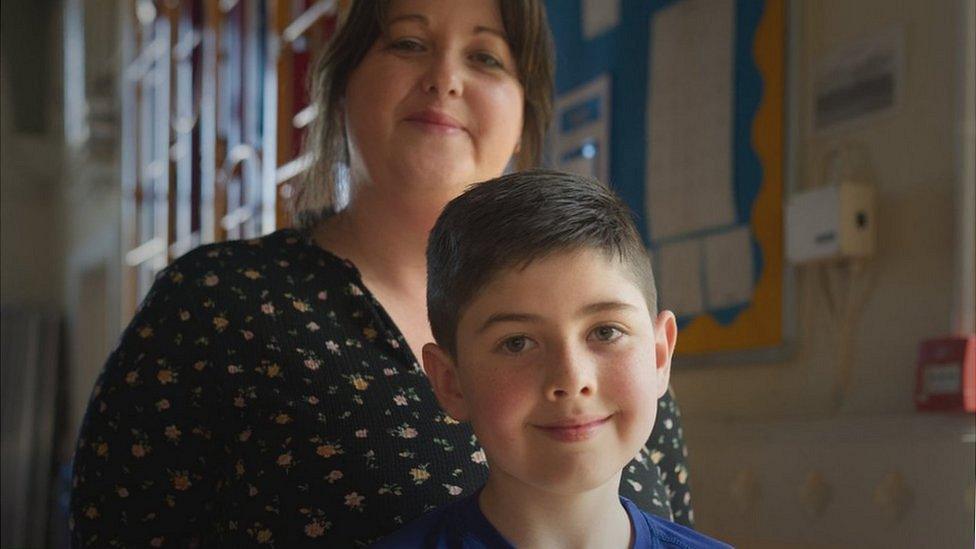Essex schools face deficits and heads fear cuts to teaching staff
- Published
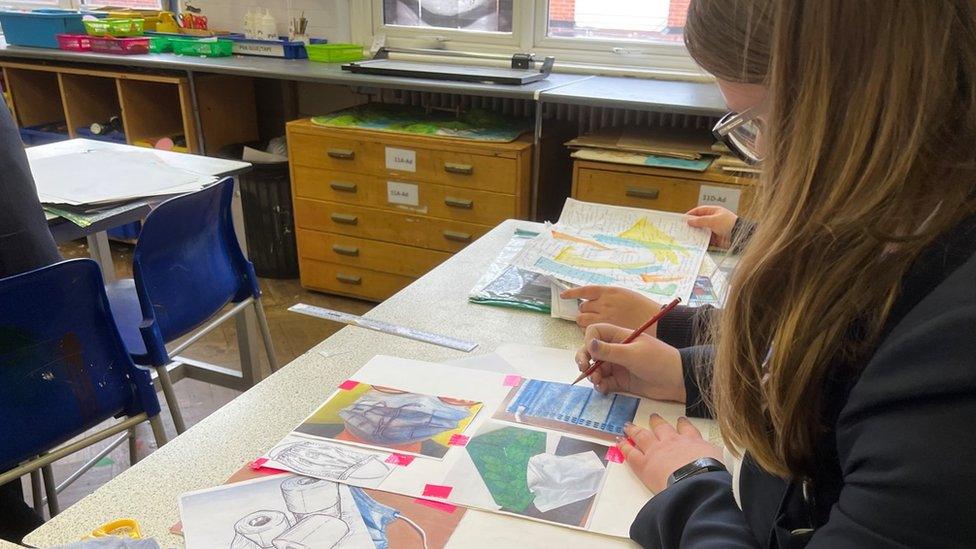
The government said it was aiming to help schools through the rise in fuel bills with its Energy Bill Relief Scheme
Nearly half the schools in the East of England are facing a deficit this year, a survey of head teachers has found.
The National Association of Head Teachers said 48% of its members in the region feared they might have to cut staff next year to balance the books.
Jody Gee, chair of union in Essex, said schools faced an average rise of £205,000 a year in fuel costs while the government was offering £45,000.
The government said it had increased spending on schools this year by £4bn.
Ms Gee told BBC Politics East that schools were grateful for the government's financial assistance, but she said it was "a small drop in a very large ocean".
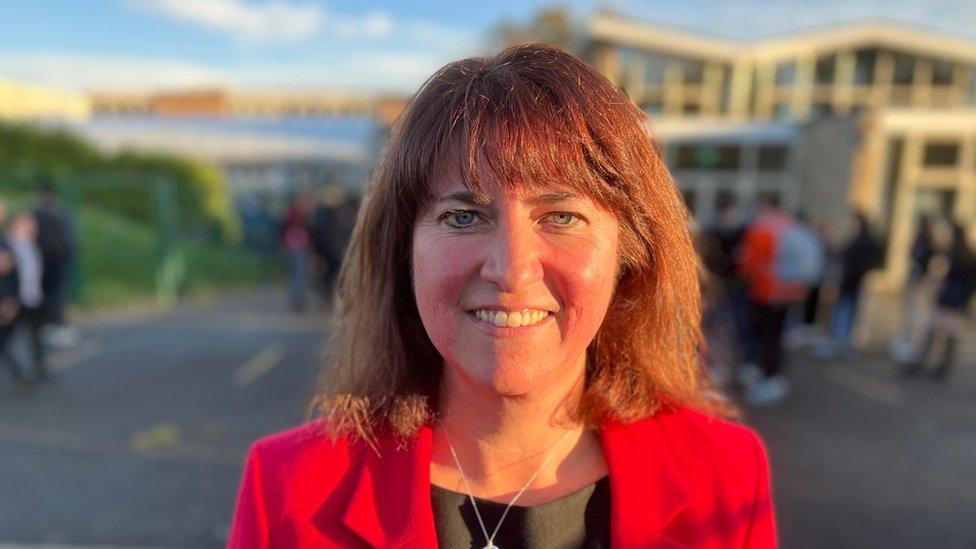
Chair of Essex branch of the National Association of Head Teachers, Jody Gee, said government support to cover rising energy costs was "a small drop in a very large ocean"
While the government boosted education spending last year, inflation and teacher pay rises of at least 5% has led the Institute for Fiscal Studies to forecast that schools would still have less money in 2025 than they had 15 years ago.
Carl Wakefield, executive principal of the Plume Academy in Maldon, Essex, said: "We now have to continue to work on that £300,000 budget deficit and, when we have worked for years and years on those fine margins, there's very little left that we can work on.
"So what it will mean for us ultimately is when staff members leave we won't be able to replace them."
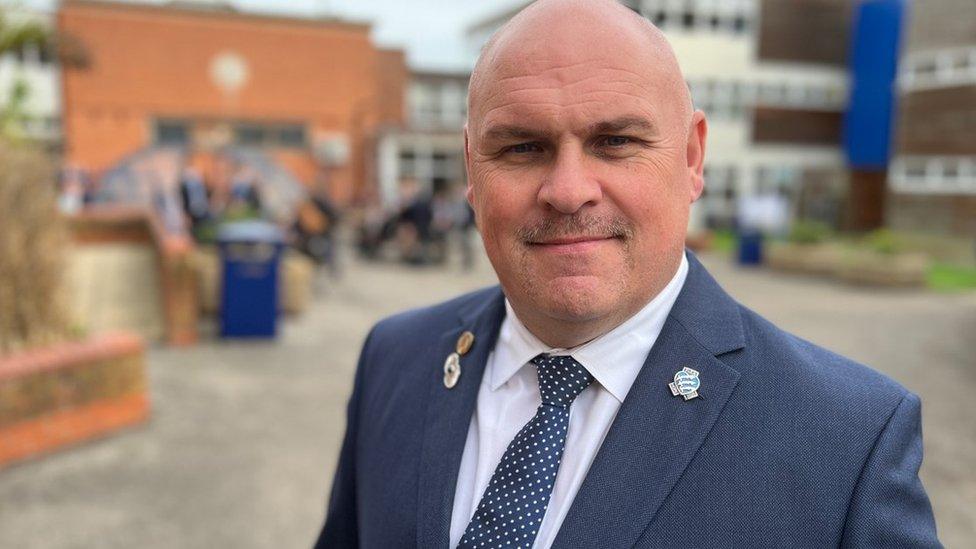
Carl Wakefield, executive principal of the Plume Academy in Maldon, Essex, said budget concerns may mean he will not be able to replace teachers who leave
Gemma Wills, head of English at the Plume Academy, criticised the government for awarding a pay rise to teachers without fully funding it.
"That means [it is] money that otherwise would be going towards students. It's very difficult if not impossible for the head to turn around and say we're not giving you this pay rise because we have no money for it," she said.
Vic Goddard, head teacher of Passmores Academy in Harlow, Essex, said: "We are about £490,000 worse off when you take into account the increase in gas and the unfunded pay increase.
"In the light of everything going on in the world we can't afford not to pay people, but we can't afford to pay it.
"If somebody leaves, you have to assess whether their jobs was not replaceable. To be honest with you I've got to the stage where there is so little I can do.
"I might have to tell the government we can't set a balanced budget. You're going to have to take us over."
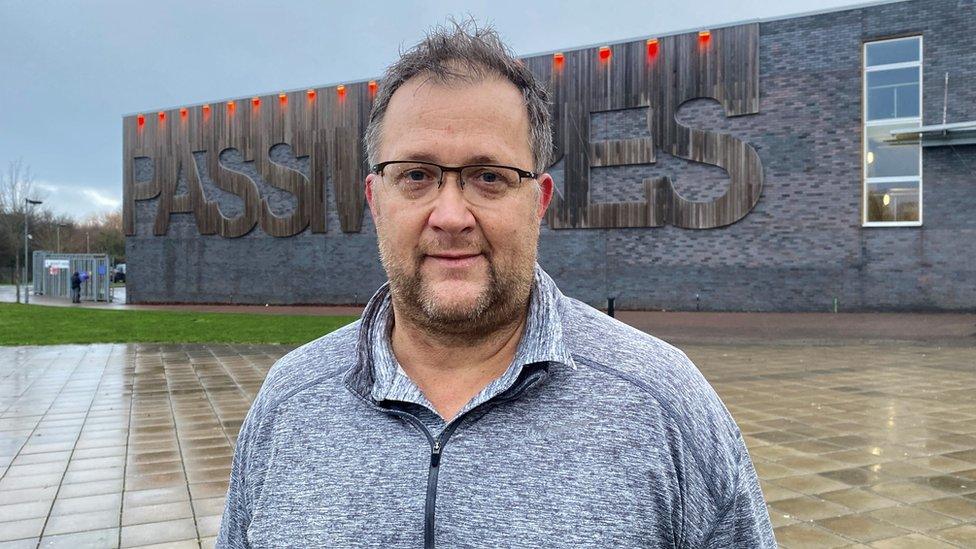
Vic Goddard said Passmores Academy was about £490,000 worse off this year
Paul Gosling, president of the National Association of Head Teachers, said: "The government haven't funded the pay rises that have come in. We've had to fund it out of resources we have already got, which we can't possibly do. School leaders are in a real bind.
"We do need better pay for everyone working in our schools, including teaching assistants, who we can't recruit at the moment in a lot of schools because we don't pay well enough.
"We are losing people to supermarkets. Our teachers' pay has been degraded by about a fifth since 2010.
"We are losing good people and we're not able to retain them. If you want to run a good education system you need good people in it."
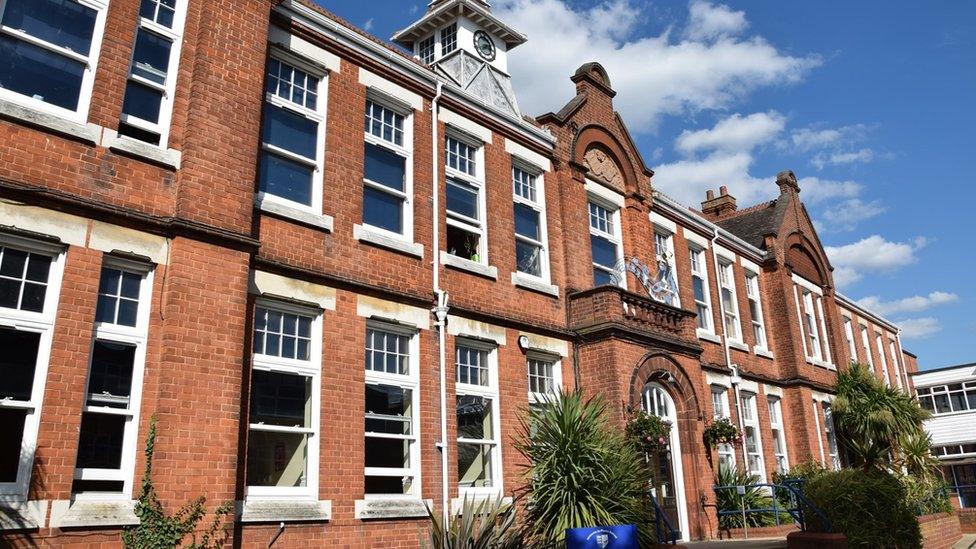
The Plume Academy in Maldon is facing a budget deficit due to the rising cost of energy and the teachers' pay award
A Department for Education spokeswoman said: "We understand that schools are facing cost pressures which is why we are providing them with £53.8bn this year in core funding, including a cash increase of £4bn for this financial year.
"All schools will benefit from the Energy Bill Relief Scheme, reducing how much they need to spend on their energy and giving them greater certainty over their budgets over the winter months.
"We are also providing schools with tools and information to help get the best value for money from their resources."
You can see more on this story on Politics East on BBC One on Sunday, 6 November at 10:00 BST, with it also available on BBC iPlayer afterwards.

Find BBC News: East of England on Facebook, external, Instagram, external and Twitter, external. If you have a story suggestion please email eastofenglandnews@bbc.co.uk
- Published18 October 2022
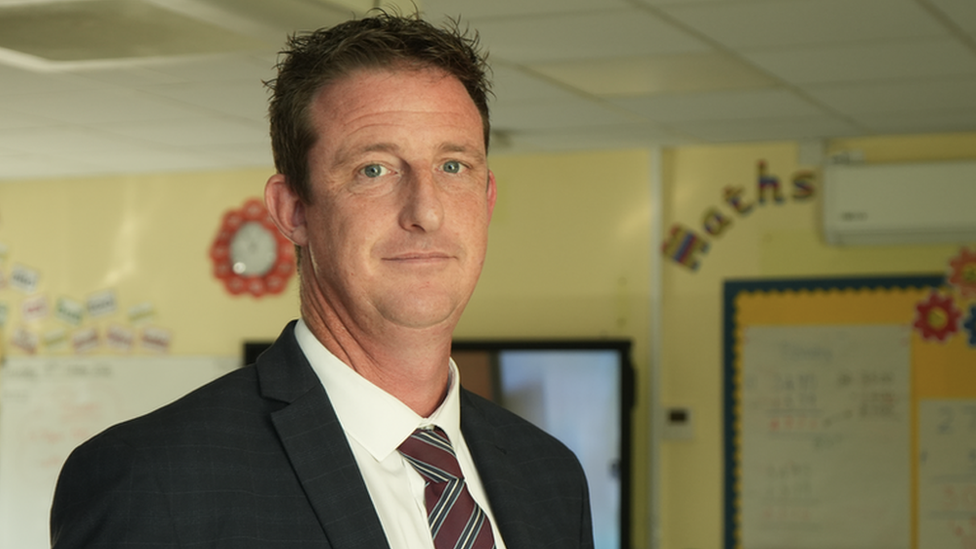
- Published8 September 2022

- Published23 September 2022

- Published1 September 2022
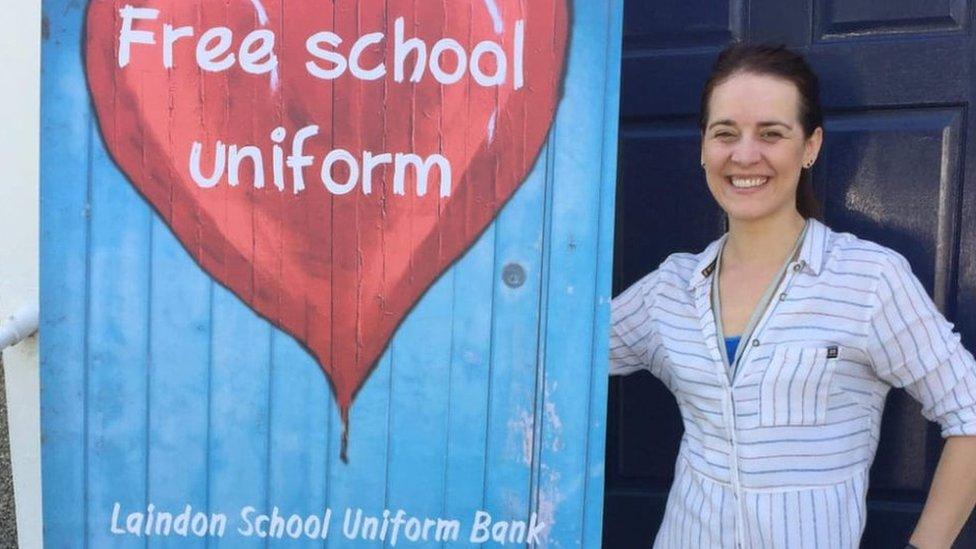
- Published1 May 2022
